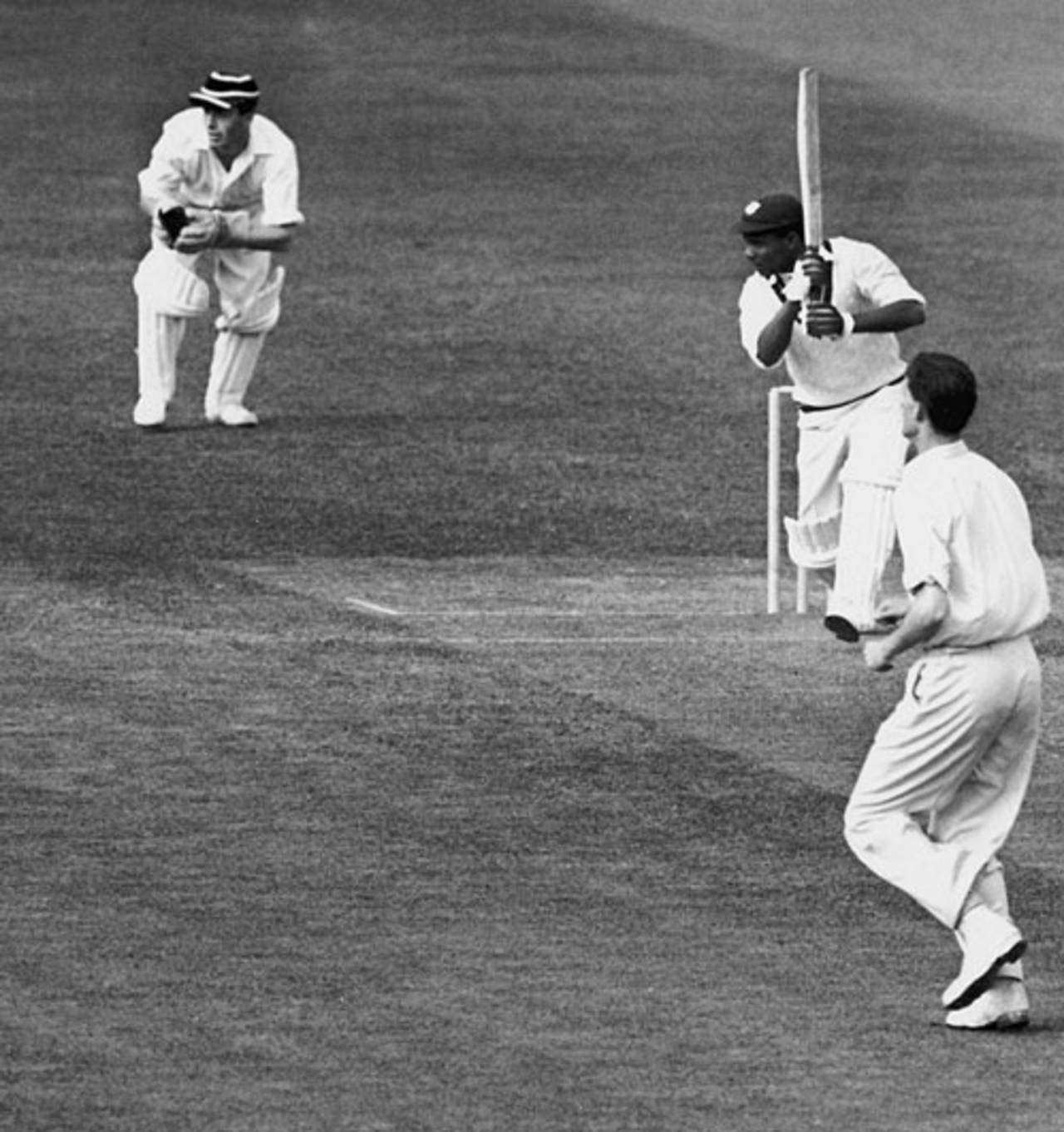Cricket clubs that are West Indian pacemen
Eleven English club sides that are actually obscure Caribbean fast bowlers
Scott Oliver
14-Mar-2014

That's Mr de Courcy Weekes to you • Getty Images
Seaton Carew (Durham)
The first ever cricketer from Curação to play professionally, the freakishly quick yet preternaturally uncoordinated Carew averaged just 0.44 for Mizzle-on-the-Moors in the 1986 Slippery Whippet Pennine & District League (his batting average wasn't too shabby, either) but developed drinking and gambling addictions thought to have been caused by opening a pub, the Bounce and Carry, next door to a bookies.
Appleby Frodingham (Lincolnshire)
Frodingham was famous for having two different bouncers: one that was unfailingly pulled for vast, towering sixes, another that was blatantly chucked from about 19 yards. He received a lifetime ban from the WICB for using a mobile-phone provider that wasn't their preferred business partner, and became a Yardie.
Bracebridge Heath (Lincolnshire)
When Jamaicans diagnosed the normally mild-mannered yet beamer-prone tearaway Heath with suffering from "white line fever", little did they realise how literally that was the case, for his excursions trading barracuda in Baranquilla were a front for another Colombian export - one that wasn't coffee. When he was rumbled getting high on his own supply en route to 9 for 14 against Trinidad, the Carib Clarion ran with the simple headline: "Snorter!"
Taunton St Andrews (Somerset)
A Frankenstein's monster of a bowler, St Andrews was trained from the age of three to bowl yorkers with his eyes closed, on a specially chalked out pitch in his father's backyard. Trouble was, said pitch had been erroneously measured out at 21 yards and so his automaton son was quite unable as an adult to do anything save serve up long half-volleys, whereupon he became a waiter, serving up Long Island ice teas and mojitos.
Leicester Ivanhoe (Leicestershire)
Ostracised for militant political views during a stop-start career with Guyana, Ivanhoe eventually quit cricket to train as a helicopter pilot, proudly naming his chopper "Lil' Leicester" and charter-flying it for years before graduating on to jets. His Marxism rubbed off rather too well on sons Che, Mao, Leonid and Ho Chi, however, who unwittingly hijacked Pa's 747 with the intention of taking it to Cuba, only for it to vanish while passing over Bermuda.
Kimberley Institute (Nottinghamshire)
The 7' 4" Institute would have been the tallest ever first-class cricketer had he not died on debut at the top of his extraordinarily long run-up moments before the umpire called "play", crushed by a stack of discarded refrigerators improvised by locals into a skyscraper sightscreen that was toppled, Jenga-like, by earth tremors from a nearby volcano. Unfortunate.
Chester Boughton Hall (Cheshire)
After an inglorious couple of seasons with Barbados B, sidelined with stress fractures of pelvis, spine, both feet, right tibia, and left fibula, Hall walked away from the game - with a pronounced limp, it must be said - and became a man of the cloth, manufacturing boldly coloured t-shirts (Irate Blue) out of a ramshackle Chittagong factory.
Kidderminster Victoria (Worcestershire)
Short and skiddy, Victoria made his first-class debut aged 13 but lacked the nasty streak required to be a top quick, as evinced when he refused to bowl until two mating ladybirds had been ushered off a length in Port-of-Spain. Instead he followed the violin-playing footsteps of his mother, thus carving out a career making sweet chin music, just not the sort his estranged father wanted.
Fleetwood Hesketh (Merseyside)
To call Hesketh angry is like calling the sun warm. The Kittitian received a ten-match ban in U-15s cricket for barging the umpire - his granddad, apparently too keen to demonstrate his neutrality - while early forays into first-class cricket were marred by his penchant for kicking the stumps over every time an lbw was refused him. He eventually died in prison, where he was serving life for rolling his wife into the pitch at his local club.
Budleigh Salterton (Devon)
Gentle giant Salterton seemed destined for a great career as a splice-hitting, venom-bringing back-of-a-length merchant. He was physically and mentally perfect and oozed fierce regional pride, but a $500-per-match offer from Leeward Islands lost its jostle with the $24m-per-year NBA contract tabled by Utah Jazz, and he emigrated to the USA, for whom he later played cricket, before replacing Murdoch Burdock as chief sports anchor on CNN.
Winchmore Hill (Middlesex)
Hill's is perhaps the saddest tale here, for on debut he got such a bad case of the stutters in his run-up that he couldn't even complete his maiden over in professional cricket, a career thus terminated two dots short of a maiden over - much as he would become when a local Rastafarian priest prescribed a humongous doobie for the blockage, after which he lost all motor and cognitive function entirely. He remains comatose to this day, 26 years on.
The author would like to go on record as saying there is absolutely no offence intended toward West Indian pace-bowling brethren, in particular those he may have to face on dodgy tracks in the upcoming season.
All "facts" in this article are made up, but you knew that already, didn't you? Scott Oliver tweets here